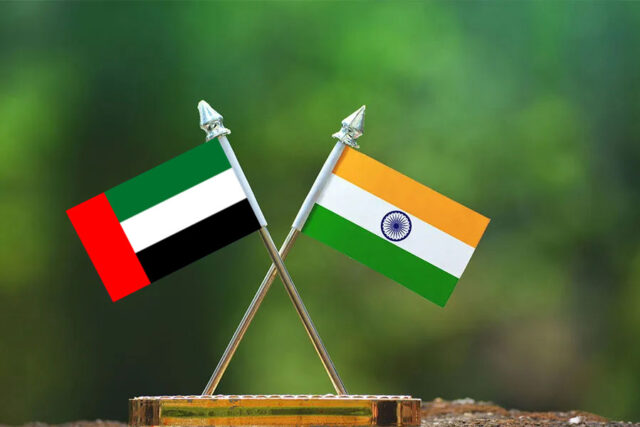The United Arab Emirates (UAE), whose food security was based on imports from international markets, is currently concentrating on the twin goals of food access and readiness to deal with supply chain problems. India, the second-largest food producer in the world, is a crucial ally in the UAE’s goal to increase food security.
India has positioned itself as a worldwide agri-export powerhouse by utilizing its huge arable land, extremely beneficial climate, and massive and expanding food production and processing sector. In acknowledgment of its expanding role in enhancing regional and global food security, India has recently served as a humanitarian supplier of food to developing countries in addition to servicing global markets with its various agricultural goods. With adequate attention to contemporary supply chain management from the farm gate to the retail outlet, India has demonstrated a significant budgetary investment toward the establishment of food parks on a wide scale. These investments, along with the way India has set up its food industry to gain from bilateral trade agreements, show the nation’s steadfast commitment to maximizing its agri-potential in the global food market.
The Advantages of a Relationship Between India and the UAE for Food Security
The Benefits for India
Construction of Food Parks: The UAE promised $2 billion in investment during the I2U2 summit in July 2020 for the development of food parks in India. This investment will help farmers find higher pricing for their goods while also creating lakhs of non-farm agri-jobs.
Accessibility to the Global Market: The food security corridor, created in conjunction with logistics partner DP World and the Comprehensive Economic Partnership Agreement (CEPA), advances India’s desired presence on the world food value chain outside of the United Arab Emirates. The corridor has the potential to create a pathway for goods produced and processed in India, starting on the Indian coast of the Arabian Sea, traveling through the United Arab Emirates, and ending up in significant global markets.
Direct Accessibility to the Food Ecosystem of the UAE: Agriota, an agri-trading and commodity platform to connect Indian farmers with food corporations in the UAE, was introduced by the Dubai Multi Commodities Centre, the largest free trade zone in the UAE. Through this platform, millions of Indian farmers will have the chance to directly connect with the complete food ecosystem in the UAE, including dealers, processors, and wholesalers, and to stock their goods in Emirati shops.
Benefits for the UAE
Diversification of Food Reserves: To feed its people, the UAE mainly depends on food imports. The UAE will be able to diversify its food supplies and become less reliant on a small number of nations for its food security thanks to its collaboration with India.
Investment Opportunities: Through this agreement, UAE-based businesses may be able to invest in India’s food and agricultural industries, including mega food parks, contract farming, and agro-commodity sourcing.
Strategic Location: The UAE’s strategic location between Asia and Europe can be used to India’s advantage as a food export hub for the wider West Asia and Africa region and beyond. This might strengthen the UAE’s status as a regional food trade hub.
Various other benefits will help enhance the food security cooperation between India and the UAE. It can further offer solutions to food security problems in the Global South. India’s agricultural products will have more flexible and diverse routes to the global market, supported by the UAE’s infrastructure capabilities.









